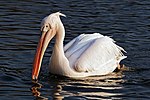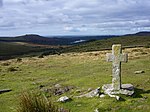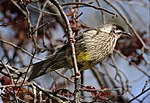Wikipedia:Wikipedia Signpost/2009-02-08/SPV
 |
|---|
|
| ||
| Volume 5, Issue 6 | 8 February 2009 | About the Signpost |
|
| ||
| (← Prev) | 2009 archives | (Next →) |
|
| ||
|
| |
| Home | Archives | Newsroom | Tip Line | Shortcut : WP:POST/A |
|
| |
News and notes: Elections, licensing update, and more
Elections for Stewards, CheckUser and Oversight positions
Elections for Stewards are currently ongoing on Meta. Stewards are elected every year from across the projects, and are confirmed by the Wikimedia Foundation Board of Trustees. Voting will run from February 1-22 here. Confirmation of current stewards is also occurring. Stewards may come from any Wikimedia project, and typically perform administrative tasks on small Wikimedia projects that do not yet have their own administrators or bureaucrats, as well as cross-project vandalism monitoring and related tasks. Stewards do not typically work on their "home wiki."
Elections for CheckUser and Oversight positions are also ongoing; votes and comments are being accepted from February 6 through February 15 here. There are currently six CheckUser candidates running for three CheckUser positions, and seven Oversight candidates running for four available positions, with two withdrawn candidates. The current list of users with Oversight and CheckUser permissions can be found on the respective policy pages, Wikipedia:CheckUser and Wikipedia:Oversight; they include current and former Arbitrators and a handful of users previously appointed by the Arbitration Committee. The positions have to do with handling sensitive information about deleted articles (Oversight) or user IP addresses (CheckUser); to quote the elections page, "Both positions require great trust, integrity, and reliability." This is the first election on the English Wikipedia for these positions. As the Arbitration Committee had proposed, the vote only provided for approval voting. However, significant opposition to this rose on the talk page, and the Committee amended the policy to allow both support and oppose votes.
Licensing vote postponed
As previously reported in The Signpost, the Wikimedia Foundation is considering transitioning to dual-licensing all project content that is currently licensed under the GFDL to also be licensed under the Creative Commons license CC-BY-SA 3.0. More information can be found on Meta.
The original project-wide vote was scheduled for February 9-March 9; however, as announced on Foundation-l, the vote has been postponed in order to gather further input and consensus. With extensive discussion on Foundation-l, the main divisive issue so far has been the area of attribution, and how reusers should be required to attribute content from Wikipedia or other projects in offline materials, such as printed books. The GFDL and CC-BY-SA licenses differ in their requirements in this area. Erik Moeller, deputy director of the Foundation, stated that he was developing a survey to help gather consensus on this matter before the vote.
Wikimedia Italia wins the Premiolino
Frieda Brioschi of Wikimedia Italia reported that the Italian Wikipedia won the Premiolino, the most prestigious journalism award in Italy.[1] The Premiolino was founded in 1960; the other six winners this year are all individual reporters.
Study measures the significance of recentism and user biases on topic coverage
A newly published study, performed on Wikipedia circa November 2006, correlates the word count of Wikipedia coverage in several areas with factors such as recentness (for our year articles, Academy-Award winning films, Time people of the year, and artists with #1 songs), population (for country articles), revenue (for companies), and coverage in Britannica (for selected random entries found there). The article, by C. Royal and D. Kapila, is called "What's on Wikipedia, and What's Not?" and was published in the February 2009 Social Science Computer Review. Positive correlations were found for everything but Time people of the year, which seemed to follow a a fairly random distribution in terms of coverage vs. year. The conclusion drawn by the authors is that "Wikipedia is more a socially produced document than a value-free information source", and demonstrates bias towards more coverage of recent events, big countries, big companies, and the coverage agenda of Britannica.
Briefly
Here is a selection of ongoing discussions this week:
- An RFC regarding A-class article assessments is currently ongoing.
- The place of "lists of unusual things" in Wikipedia is being discussed; should such lists be kept?
- Discussions regarding a trial of flagged revisions are continuing.
- The RFC about date linking and related specification in the Manual of Style is continuing until February 26. This is also related to the current Arbitration case on date delinking, discussed in this week's Arbitration report.
Milestones
- The Catalan Wiktionary has reached 10,000 articles.
- The Vietnamese Wikipedia gains its 100,000th registered user, Xuancanh. Of these users, 835 are currently considered "active".
- The Ukrainian Wiktionary has reached 9,000 articles.
- The Wikipedia of the Ripuarian Platt languages got its 10,000th article, which is about the game of Diäsch.
In the news
DW-World interviews Jimbo Wales
Michael Knigge of Deutsche Welle recently conducted an interview with Wikipedia founder Jimbo Wales. The interview touches on a number of current issues, including potential competition from Knol, Encyclopedia Britannica, and Brockhaus, the recent Kennedy-Byrd incident and flagged revisions, the role of the Internet in today's society, and funny German words.
The Independent discusses future of Wikipedia
In an extensive article, The Independent discusses the future of Wikipedia. In light of various acts of vandalism, including the recent Kennedy-Byrd incident, The Independent considers the ongoing discussion of Flagged Revisions as a crossroads between access and accuracy. The article also discusses the financial difficulties associated with Wikipedia's ever-increasing "hunger for bandwidth". Reid Priedhorsky, quoted in the article, has posted about problems with the article.
WikiDashboard is launched
An article published in Technology Review discusses the launch of the newly improved WikiDashboard, which analyzes trends and promotes "social transparency" in Wikipedia. By searching for an article through WikiDashboard, anyone can see a list of the most prolific contributors to that article, along with a chart showing the distribution of their edits over time. The team of researchers is currently discussing ways to make the data more usable and easier to read.
More on Flagged Revisions, and a missing article
An article on the possibility of flagged revisions called "The wiki-snobs are taking over" was published February 8 in The Sunday Times. In it, Giles Hattersley interviews Jimmy Wales about errors in Wikipedia, and writes about his own impression of the site as being full of errors and problems. Hattersley also mentions that there are mistakes in his own entry. However, at the time that the Times article was published, there had never been a Wikipedia article about Hattersley. The Daily Telegraph blog picked up on this discrepancy, publishing a short entry about the lack of a Wikipedia article. An article on Hattersley was created after the article appeared but was quickly deleted pending further investigation. Discussion is ongoing at Talk:Giles Hattersley.
Dispatches: April Fools 2009 mainpage

Once again, it's time to begin preparing for Wikipedia's tradition of celebrating April Fools' Day on April 1. Some media outlets follow an April Fools tradition that dates back to medieval times by printing hoax articles—probably the best known of which was the BBC's spaghetti tree hoax.
Raul654 first proposed an April Fools' Day featured article (FA) in March 2005, stipulating that the article must first pass FAC like any other daily featured article; because a featured article must be factually accurate, this means no made up articles. A lengthy debate ensued about how to handle April Fools. No article was written and featured in time for April Fools' Day 2005; instead, the main page was filled with hoaxes: Bishonen's sublime European toilet paper holder article as the FA, and Britannica was taking over Wikimedia in the news.
On April Fools 2006 we featured Spoo as an unusual article, and in 2007 we featured George Washington (inventor), written primarily by Pharos. The latter appeared on the main page written as if it were a hoax; everything in the description, however, was entirely true. A similar approach was taken in 2008; Karanacs led a collaboration that involved more than a dozen editors to bring Ima Hogg to featured status in time for April Fools. The blurb that appeared on the Main Page was written mostly by The Fat Man Who Never Came Back, again as a hoax in which everything was entirely true. CNET News reviewed Wikipedia's April Fools' coverage favorably, saying:
Whoever wrote the fake Ima Hogg bio might want to think about pursuing a career in screenwriting. It sounds more amusing than any of the movies I've seen recently... [2]
And the Houstonist reported:
Eat your heart out, History Channel. You may have fancy production values and three-dimensional graphics of Roman aqueducts and WWII bombers, but you'll never have the sort of ethical objectivity and factual foundation that Wikipedia does. [3]
Because of the success, and the fact that we really did have many people confused, this is the path we are going to follow this year, if we have an article that allows it. Candidates meeting the Featured article criteria should be submitted to FAC in time to be reviewed and promoted before April 1—by late February or early March at the latest. Once Raul654 promotes and chooses an article to be featured as the April 1 Today's featured article, a mainpage blurb is submitted that may be "totally different from the lead in [of the article], and ... as outlandish or misleading as possible, provided it's all true".[4] The mainpage blurb should be a maximum of 1,400 characters including spaces.
Ideas for an article that could be brought to featured status in time for April 1, 2009 can be culled from unusual articles, which offers a potential list including Mozart's Leck mich im Arsch (translated as "Kiss my ass"; literally: "Lick me in the ass"), Casu marzu and Brfxxccxxmnpcccclllmmnprxvclmnckssqlbb11116. Other ideas, and general discussion of the April Fools' featured article, are at the April Fool's Main Page discussion page.
Did you know?
The main page Did you know? (DYK) section also runs hooks for pages that are odd enough to seem like April Fools' jokes, but are actually referenced articles. Suggestions for 2009 are discussed at Wikipedia:April Fool's Main Page/Did You Know.
In the past, the usual requirement for new material from the past five days was waived to include new material created during the prior year. DYK entries in 2008 included:

Did you know...
- ...that the 24 Hours of LeMons includes such penalties as tarring and feathering a racer's car and crushing a car via audience vote (crushing of a car pictured)?
- ...that John F. Kennedy was shot dead in an ambush by government agents who had foreknowledge of his whereabouts?
- ...that after a long term at the helm, Sir Winston Churchill was succeeded by Prince William in 2000?
- ...that in a few villages and towns of southern France and Spain it is illegal to die, and that there are attempts to have the same law in a town in Brazil?
- ...that men are able to be insured against alien impregnation?
- ...that Ben Affleck died while shoveling snow outside of his house, leaving behind an unexpectedly small estate speculated to be worth as little as US$20,000?
- ...that six latrines at Black Moshannon State Park in Pennsylvania are listed on the National Register of Historic Places?
- ...that Wiener sausages are named after the mathematician Norbert Wiener?
- ...that the winner of the Ernie Awards is the person who gets the loudest boos from the audience?
- ...that the 31 mi (50 km) West Rim Trail along the Grand Canyon was selected by Outside Magazine as the best hike in Pennsylvania?
- ...that James Garner sent two of his associates into a room filled with toxic chlorine gas?

DYK entries from 2006 and 2007 mentioned:
- Queen Elizabeth II worked as a lorry driver during World War II.
- Joshua Blahyi, a Liberian warlord also known as General Butt-Naked.
- The British Rail flying saucer design patented in 1970.
- Casu marzu, a Sardinian cheese known for its leaping maggots.
- Brfxxccxxmnpcccclllmmnprxvclmnckssqlbb11116 is a legal name in Sweden.
Today's Featured Picture
Unlike the Featured Article and DYK, Today's Featured Picture (also known as the Picture of the Day) is difficult to fill with a "jokey" entry. The approach the last few years has been to show a silly picture with a serious caption. A fresco that resembled Mickey Mouse was featured in 2006, 2007 showed a statue of Louis Agassiz with its head under the ground, and 2008 had the Grenville Diptych, a coat of arms that features a ridiculous 719 smaller coats of arms on it.
-
Medieval Mickey Mouse (2006)
-
Louis Agassiz statue (2007)
-
Grenville Diptych (2008)
The picture that will be selected must be of Featured Picture quality and must be suitable in tone for display on the Main Page. Suggestions can be made at Wikipedia:April Fool's Main Page/Today's Featured Picture.
Note on jokes
In general, it is OK to make April Fools jokes in the 'user' and 'user talk' namespaces. However, do not do it in the article namespace—that is considered vandalism and is liable to get you blocked.
See also
WikiProject Report: WikiProject Music
In this edition of the WikiProject report, the spotlight shines on WikiProject Music, launched on January 25, 2003. While more than 140 users have listed themselves members of the project, it does not have any formal article assessment process; unlike those WikiProjects discussed in previous issues, WP Music is a self-described "umbrella project". Here to tell us more about it is Kleinzach.
- Share with us your history as an editor here on Wikipedia.
- I started on 2 November 2005. I'd seen wikis before, but hadn't really understood the idea. I intended to put about a dozen things I'd written in the public domain. When I did that I was immediately hauled up for infringing my own copyright! I guess that was the equivalent of being thrown in the deep end of the swimming pool!
- Anyway, I soon found that MediaWiki/Wikipedia had solutions for many of the typical problems encountered in the editing of print encyclopedias (which is my background) and I became fascinated.
- At first I focused on opera. Back in 2005 there were only about 1,500 articles under the scope of the Opera Project. They were rudimentary. Popular music was better served - at least in terms of the sheer number of articles. So I persuaded some friends of mine from a well-known internet list to join. Some of them found collective editing difficult to accept, but a few of them stayed on and with some other prolific editors joining at around the same time, the project became one of the most dynamic medium-sized ones on the encyclopedia. In September 2008 the project achieved the milestone of its 5,000th article.
- Over the last year or so I've been gradually shifting my interest to other related groups: Composers, Classical music, Contemporary music, and the big umbrella, coordinating projects of Music and Arts.
- What kind of editor am I? I suppose I'm basically a contributor - I've started about 250 articles - but I'm also a copyeditor. (My rule is to never let a typo remain once I've spotted it!) I'm involved in processes like assessments, bot runs etc. which offer tremendous possibilities for the future if we can improve them . . . . and recently I have been working on a series of large, complex, re-sortable tables of musical works - of a kind that we couldn't do in print.
- For those who might be unfamiliar with the concept of an umbrella project, what purpose does WP Music serve? Why doesn't it have an assessment table?
- The Music Project is an alternative place for discussions. Most of the 50-odd active music-related projects are small, typically with 20, 50 or 100 articles devoted to a single band, genre, instrument or whatever, and need to talk to other groups from time to time. It's also good to just keep in touch. The larger projects like Classical Music or Jazz may not need this interaction, but small groups can easily lose motivation - we already have about 70 inactive ones listed by the WikiProject Council!
- The Project also has the MUSTARD or 'Music Standards' guidelines. More work is needed to make sure they include editing practices and styles developed by individual projects on the one hand, and are consistent with WP-wide practice, the Manual of Style etc. on the other, but this will become an important resource in the future.
- The Music Project did have a talk-page banner at one stage but it was displayed on only 4,000 articles out of an estimated 150,000 total pages (July 2008 figures). We discussed whether or not it would be viable to banner and assess all 150,000 pages but decided against it. So assessments are left to the specialized music projects such as Albums (71,000 articles), Songs (29,000), Classical Music (9,500), Opera (5,300), Composers (4,300) Jazz (3,500), Rock (3,500) etc. The banners are gone and it's become an overarching umbrella like the Arts Project. I think this makes sense, music is incredibly broad - no-one attempts to cover it all. Bannering would have just created more talk page clutter, huge numbers of unassessed or mis-assessed articles. Detailed written assessments of the kind done by the Composers Project (see here) would have been impossible on this mega-scale.
- On the subject of centralized discussions, I noticed on the WP Music talk page that six archives are dedicated to the "Infobox debate". What was that all about?
- Infoboxes (especially biographical ones) have long been controversial! The long debate you've seen was about whether or not to remove genre fields from the boxes used by some of the projects. Genre is always an important factor in music interpretation, hence the 'passionate' interest in this subject.
- What other major discussions have occurred within WP Music?
- Back in 2003 the first discussion was about piped 'year in music' links, and the last longish discussion was about sources for verifying the notability of rock bands. Reliable sources preoccupy the projects. Young musicians of all kinds want to have pages on Wikipedia, and we have to decide if they are notable. It's tricky and a lot of pages are sent to WP:AFD for scrutiny.
- The music industry is extremely fast-paced, so it is understandable why music projects would have massive surges of article creation like the one you described for WP Opera. However, music also represents a fairly sizeable chunk of all featured articles. How do music editors manage to keep up with new information while still producing featured content?
- Actually, although there are a lot featured articles on music, many editors (myself included) are working on improving overall coverage rather than improving individual articles to featured standard. (Rather than produce a limited number of long, well -referenced pages, some of us are trying to match the scope of the established music encyclopedias like Grove, before starting to attempt to compete with them in quality.) Also it's worth noting the progress of the top 10 or so main projects (including the dynamic Opera) has been fairly steady and will continue.
- Having said that, the small narrow, niche projects, devoted to a single band, composer, or genre have been excellent at recruiting knowledgeable, enthusiastic people to write up-to-date, high quality articles. I was involved in setting up and assessing the Wagner Project which was a good example (only 74 articles but high quality). These projects, by definition, work in surges/spurts, but that's fine of course, that's the way it should be.
- For inexperienced editors looking to get involved, would you recommend jumping right into the WP Music discussions, or to find a project relevant to a more specific interest first?
- A specific music project, perhaps even a specific article or group of articles - there's a list here. (It would be great if everybody - not just new editors - could adopt articles relating to 'their' music.) If there isn't a suitable project in existence, then a new one can be proposed on the Music discussion page, here. If at least a few people are interested, then I'm sure someone will be available to help set it up. Thank you.
Features and admins
Administrators
Three editors were granted admin status via the Requests for Adminship process this week: Somno (nom), RegentsPark (nom) and Rootology (nom).
Bots
Five bots or bot tasks were approved to begin operating this week: MelonBot (task request), Thehelpfulbot (task request), Erik9bot (task request), JerryBot (task request) and Bot0612 (task request).
Featured pages
Five articles were promoted to featured status this week: Ursula Franklin (nom), William D. Boyce (nom), Flywheel, Shyster, and Flywheel (nom), Beorhtwulf of Mercia (nom) and Suffolk Punch (nom).
Fourteen lists were promoted to featured status this week: List of New York Islanders award winners (nom), List of Hot 100 number-one singles of 2003 (United States) (nom), List of number-one albums of 1999 (U.S.) (nom), List of Muni Metro stations (nom), List of tallest buildings and structures in Tokyo (nom), List of Atlanta Hawks head coaches (nom), NWA Hall of Fame (nom), Timeline of the 1992 Atlantic hurricane season (nom), List of World Series of Poker Ladies Champions (nom), New York Islanders seasons (nom), List of awards and nominations received by Fiona Apple (nom), BBC Sports Personality of the Year Helen Rollason Award (nom), List of foreign-born United States Cabinet Secretaries (nom) and Leverhulme Medal (Royal Society) (nom).
One topic was promoted to featured status this week: German Type U 66 submarines (nom).
No portals were promoted to featured status this week.
The following featured articles were displayed on the Main Page this week as Today's featured article: Year Zero, Bone Wars, Makemake, Tim Duncan, Action of 13 January 1797, Isaac Shelby, "Hell Is Other Robots" and House of Gediminas.
Former featured pages
No articles were delisted this week.
No lists were delisted this week.
No topics were delisted this week.
Featured media
The following featured pictures were displayed on the Main Page this week as picture of the day: 1913 Panorama of Dallas, Texas, Paper wasp, 1897 Arctic balloon expedition, Hélène Dutrieu, Girl With Pearl Earrings, Crescent Honeyeater, Punch magazine and Stiched panorama of Vancouver.
Three media files were featured this week:
|
| John F. Kennedy Inauguration Address Video | (nom) |
|
| Barack Obama's inauguration speech | (nom) |
|
| Barack Obama taking the Oath of office | (nom) |
No featured pictures were demoted this week.
Thirty-six pictures were promoted to featured status this week and are shown below.
-
-
The Colloseum
The Report on Lengthy Litigation
The Arbitration Committee has opened Checkuser and Oversight elections; while the policy initially called for approval voting only, discussion on the talk page led the Arbitration Committee to allow both support and oppose votes. Sade was desysopped by the Committee for abusive sockpuppetry.
The Arbitration Committee opened no cases this week, and closed one, leaving a total of five cases open.
Evidence phase
- SemBubenny: A case about the communication behavior of SemBubenny (formerly Mikkalai), and his use of administrator tools in disputed deletions.
- Ayn Rand: A case about editorial behavior, such as alleged POV-pushing and bad faith, in relation to the Ayn Rand article. The Arbitration Committee accepted the case as they found that all other avenues of dispute resolution had failed to resolve the dispute.
- Date delinking: A case regarding the behavior of editors in the ongoing dispute relating to policy on linking dates in articles. An injunction has been issued prohibiting large-scale linking or delinking of dates until the case is resolved.
- Scientology: A case regarding behavioral problems in Scientology-related articles; the case is related to the prior case Wikipedia:Requests for arbitration/COFS.
Voting
- Fringe science: A case initially filed about the behavior of ScienceApologist, but opened to look at editing in the entire area of fringe science, and the behavior of editors who are involved in the area of dispute. In a proposed decision now being voted on by arbitrators, Coren has proposed the creation of a new type of arbitration remedy, "supervised editing", which an editor may be placed under when he or she does not "engage other editors or the editorial process appropriately". A designated supervisor would be permitted to revert or refactor the edits of the other editor at his or her discretion, ban the editor from articles, or require that the editor propose any substantial content edits to the supervisor, who will make the edits on his behalf. After the period of supervision terminates, the supervisor will submit a report to the committee who will revise the remedy that placed the editor under supervision. Other remedies include placing ScienceApologist under such supervision, restricting Martinphi from editing policy and guideline pages, admonishing Pcarbonn, and issuing general warnings to behave and seek mediation. Arbitrator voting is in progress.
Closed
- PHG: A case brought by PHG, in a follow-up to a prior case against PHG, Franco-Mongol alliance. PHG's existing topic ban was narrowed in scope and, as narrowed, was extended until one year from the date of the decision.




































